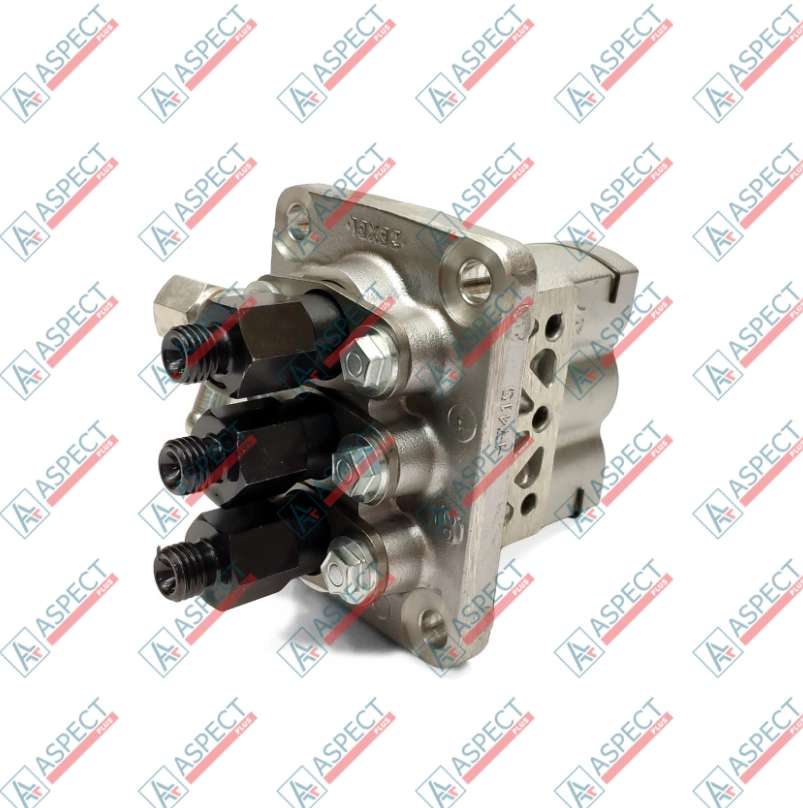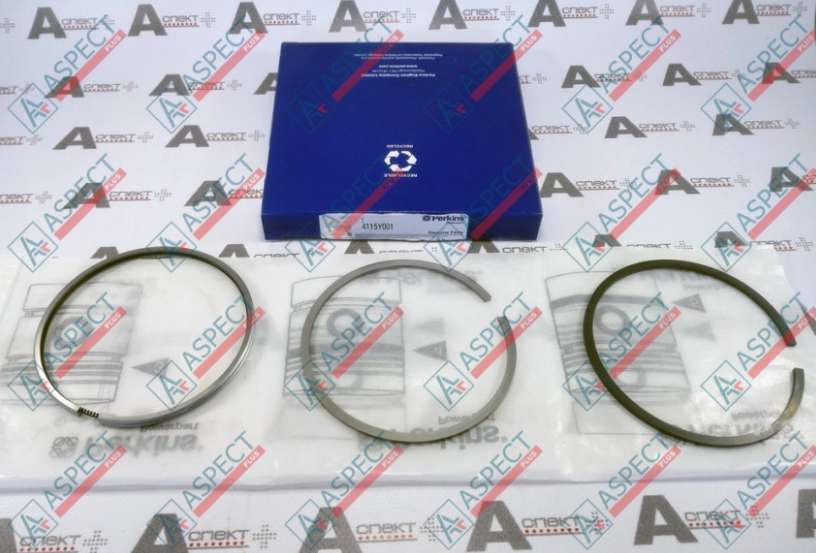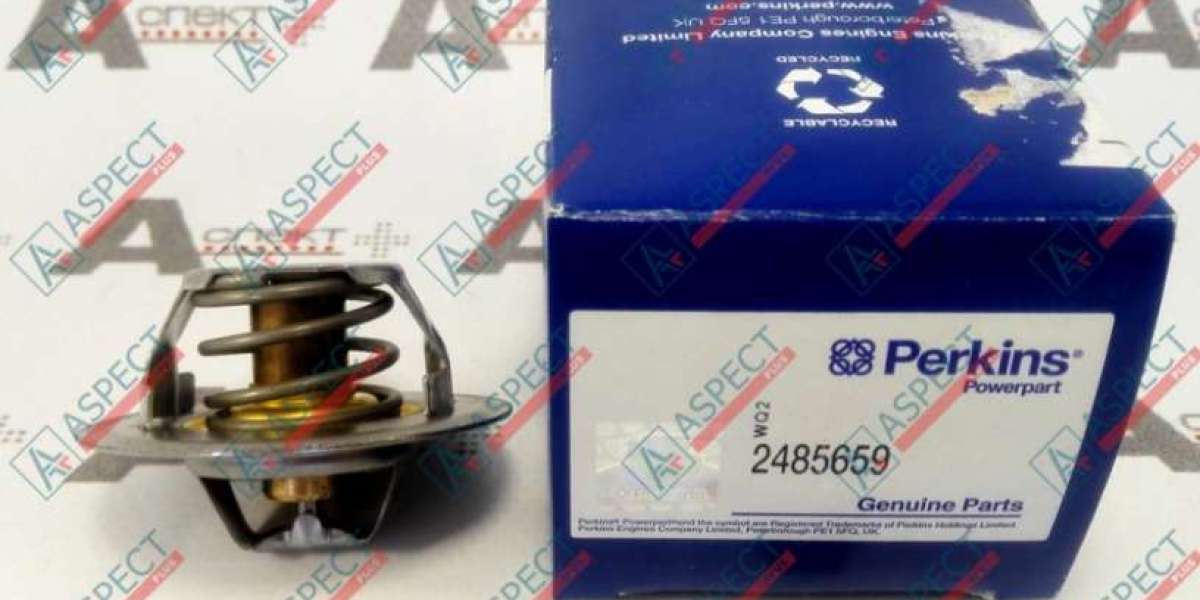Perkins engines are the backbone of countless generator sets globally, relied upon for their consistent performance and exceptional reliability in power generation. While Perkins engineers these engines for longevity, their sustained fuel efficiency and maximum uptime depend directly on the quality of spare parts used during maintenance and repair. This article provides a detailed analysis of the role that specific Perkins spare parts play in maintaining and optimizing the fuel efficiency of your generator sets, highlighting why the choice between genuine and low-quality alternatives is a strategic business decision.
The Critical Interplay: Engine Health and Fuel Efficiency
A diesel engine's fuel efficiency is defined by its ability to convert the maximum amount of fuel energy into mechanical work. Any degradation in the engine's core systems—be it air intake, combustion, or lubrication—creates resistance and heat, forcing the engine to consume more fuel to maintain the required power output. For Perkins engines in generator sets, where continuous, stable power is required, this loss of efficiency directly impacts operational costs.
The use of quality spare parts is therefore the primary mechanism for preserving the engine's original factory specifications and fuel economy.
economy.
Key Perkins Parts and Their Direct Impact on Fuel Consumption
For Perkins engines, several spare parts are critical to fuel efficiency. Compromising the quality of these components is a guaranteed route to increased operating costs.
1. The Fuel System (Injectors and Filters)
The fuel system is the most sensitive area influencing fuel efficiency.
- Fuel Injectors (or Fuel Injection Pump): These are precision components responsible for atomizing fuel and delivering it into the combustion chamber at the correct pressure and timing.
- Impact of Worn Parts: Worn or dirty Perkins injectors cause poor fuel spray patterns (dribbling instead of atomization), leading to incomplete combustion. This results in power loss, black smoke, and a drastic increase in fuel consumption.
- Quality Solution: Genuine Perkins parts ensure that the spray pattern and pressure are restored to OEM standards, guaranteeing maximum energy extraction from every drop of fuel.
- Fuel Filters: These filters protect the sensitive injection components.
- Impact of Poor Quality: A low-quality fuel filter may fail to remove microscopic contaminants and water, leading to rapid wear of the fuel pump and injectors. A clogged filter restricts flow, starving the engine and forcing it to run less efficiently.
- Quality Solution: Quality Perkins fuel filters ensure a clean fuel supply, protecting the high-precision parts and maintaining optimal flow, which is crucial for the engine's efficiency.
2. The Air Intake System (Turbocharger and Air Filter)
The engine needs clean, compressed air for efficient combustion.
- Turbocharger: This component compresses air to increase the density of the charge entering the cylinders.
- Impact of Worn Parts: Turbocharger wear (e.g., damaged fins, worn bearings) reduces the compression of the intake air. This results in an insufficient air-to-fuel ratio, leading to incomplete combustion and excessive fuel consumption.
- Quality Solution: Using genuine Perkins turbocharger parts ensures that the component operates at peak speed and compression, maximizing combustion efficiency.
- Air Filter: A Perkins air filter is the first defense against abrasive dust.
- Impact of Clogging: A neglected air filter restricts airflow, "suffocating" the engine. The engine control unit (ECU) may try to compensate by adjusting fuel delivery, but the result is always a loss of power and an increase in fuel consumption.
3. The Lubrication System (Oil and Oil Filters)
The entire purpose of lubrication is to reduce friction.
- Oil Filters: They keep the lubricating oil clean.
- Impact of Contamination: A failed oil filter or old, degraded oil allows metal particles to circulate, drastically increasing internal friction and wear on bearings and piston rings. This friction consumes engine power and generates heat, reducing the engine's overall fuel efficiency.
- Quality Solution: High-quality Perkins oil filters and the correct grade of oil ensure low friction, allowing the engine to dedicate maximum power to power generation rather than overcoming internal resistance.
The Aspect Plus Strategy: Quality Parts for Uptime
Investing in genuine spare parts for Perkins engines is the most effective preventive maintenance strategy for generator sets. It directly reduces operational costs by guaranteeing fuel economy and minimizing costly, unplanned downtime.
Our company Aspect Plus offers a wide range of genuine Perkins parts and certified high-quality alternatives, covering all critical systems mentioned. We provide:
- Expert Consultation: Professional advice on selecting the correct fuel filters, injectors, and turbocharger components for your specific Perkins engine model.
- Quality Assurance: Guaranteeing that every spare part meets the strict metallurgical and precision standards necessary to protect your high-value engine.
By choosing quality components from Aspect Plus, you are making a strategic investment in the reliability and sustained fuel efficiency of your power generation equipment.



